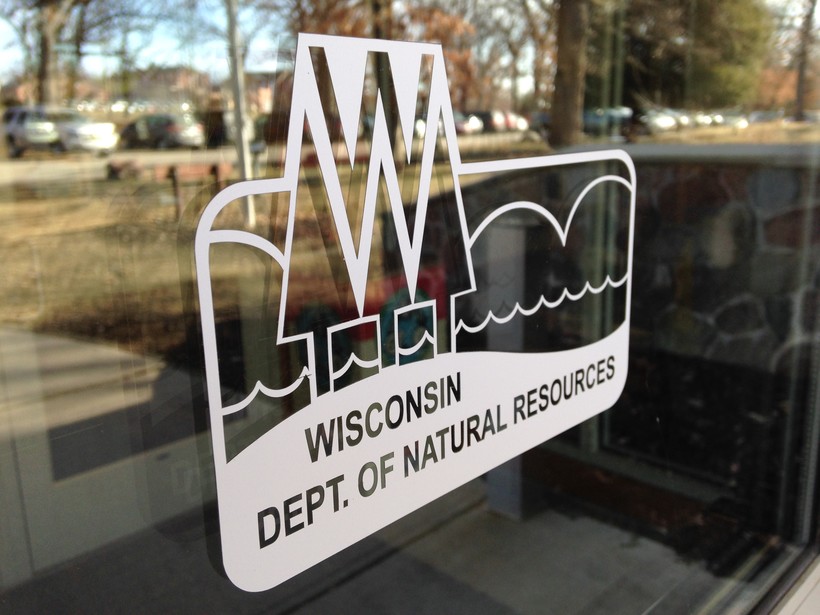Karen Hyun will be the state’s next secretary of the Department of Natural Resources, a cabinet position that’s gone unfilled for more than a year.
Gov. Tony Evers announced the appointment Monday morning. Hyun will assume the office on Jan. 27, and her appointment marks the end of the office’s longest vacancy in more than 50 years, according to a former agency head. She is the first woman to lead the DNR since Cathy Stepp, an appointee of Republican former Gov. Scott Walker, who left the agency to become a regional administrator for the U.S. Environmental Protection Agency in 2017. Hyun would also be the first Asian American person to lead the DNR.
The former secretary under Evers, Adam Payne, resigned in October 2023 for personal reasons.
Stay informed on the latest news
Sign up for WPR’s email newsletter.
Hyun most recently served as the chief of staff of the National Oceanic and Atmospheric Administration, or NOAA, since 2021.
“Dr. Hyun’s extensive science background and expertise working in fish and wildlife, shoreline restoration, and coastal management and resilience will make her a great asset to the Department of Natural Resources and to our administration,” Evers said in a news release. “Having spent most of her career working in environmental policy, Dr. Hyun brings a wealth of experience navigating many of the issues the department is charged with managing every day, and I’m so excited for her to get started.”
Hyun has also served as a senior advisor for NOAA and the deputy assistant secretary for fish, wildlife and parks at the Department of the Interior. She was the director of water and coastal policy for the National Audubon Society before becoming vice president of coastal conservation in 2018. During that time, Hyun spearheaded work on coastal resilience, marine conservation and restoration within the Gulf of Mexico.
In a statement, Hyun said she was honored to accept the appointment.
“Wisconsin is known for its abundance of natural resources, wildlife and outdoor recreation opportunities, and I have spent much of my life dedicated to understanding, conserving and promoting the natural resources and spaces that we all know and love,” she said. She pledged to work with DNR staff to “ensure that Wisconsin’s ecosystems, wildlife, natural spaces and resources remain accessible, safe and available for generations of Wisconsinites to come.”
Hyun also served in roles at the U.S. Department of Commerce and as professional staff for the U.S. House Committee on Natural Resources. She earned bachelor’s and master’s degrees from California’s Stanford University, as well as a doctorate from the University of Rhode Island. Hyun lives in Madison with her husband and children.
Senate Republicans have fired 21 Evers appointees
The DNR has been a lightning rod for controversy in the past year regarding wolf management, land conservation projects and efforts to address PFAS contamination. Evers previously told WPR that the firing of his appointees by Wisconsin’s Republican-controlled state Senate has made it more difficult to hire a secretary following Payne’s resignation.
The Senate has rejected 21 Evers appointees. They include eight appointees fired last fall, as well as Evers’ appointee to the Public Service Commission in January.
Republican lawmakers say they’ve approved the vast majority of Evers’ appointees. Since Evers took office in 2019, the Senate had confirmed 579 appointees as of October, according to the Legislative Reference Bureau. At that time, there were 175 appointees awaiting Senate confirmation.
Former DNR secretaries have urged Evers to fill the position as the state is set to begin deliberations on the next two-year state budget. Deputy Secretary Steven Little has been serving as acting secretary in the interim, but former agency heads said he’s not empowered to lead on issues given his temporary status.
Stewardship funding, PFAS spending among contentious issues for Legislature
After Payne’s resignation, Evers sued leaders of the Republican-controlled Joint Committee on Finance, arguing they violated the state constitution’s separation of powers guarantee by blocking conservation projects and pay raises for Universities of Wisconsin employees. In July, the Wisconsin Supreme Court ruled 6-1 that certain statutes governing the Knowles-Nelson Stewardship Program unconstitutionally authorize the committee to block spending of funds the full Legislature had already earmarked for land purchases.
Republican lawmakers had voted to kill $4 million in Stewardship funding for the Pelican River Forest, the state’s largest conservation project in state history. Evers later went around them by finalizing the purchase with federal funds.

Evers and Republican lawmakers have also been at odds over how to spend $125 million set aside under the current two-year budget to help communities address PFAS contamination. In April, the governor vetoed a GOP bill that would have used the money to provide grants to communities and landowners, citing concerns over limits on the DNR’s authority to test for and clean up the chemicals.
Nearly a year and a half later, the funds have yet to be distributed despite repeated calls by Evers for Republicans to release the money. GOP lawmakers have cited legal risks in doing so after the governor vetoed the Republican plan to address PFAS.
Wisconsin Public Radio, © Copyright 2025, Board of Regents of the University of Wisconsin System and Wisconsin Educational Communications Board.


